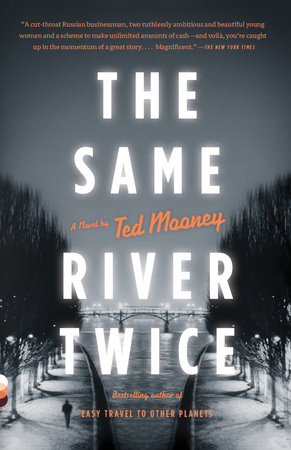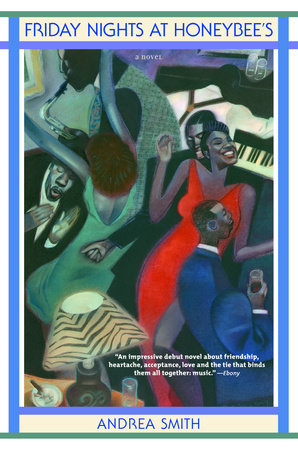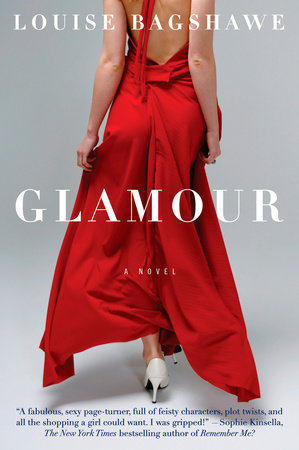A Conversation with Mimi Thebo
Richard Kerridge is an eminent ecocritic who is very interested in the relationship between literature and place. Richard taught Mimi Thebo for seven years, first as an MA lecturer and then as her PhD supervisor. Today they are colleagues at Bath Spa University. Although they have the highest respect for each other, they frequently disagree. Bath Spa’s Newton Park campus is an old manor farm owned by the Duchy of Cornwall. Richard and Mimi’s offices overlook a paddock used for pasturing beef cattle and a small fourteenth- century castle. It’s here they have some of their best arguments.
Richard Kerridge: Eudora is presented as a rural town of a certain size. Your writing includes details of many different kinds of work and play, typical of such a town. How did you research this?
Mimi Thebo: When I was finishing my BA in the early eighties, gas was cheap and global warming was something I could shove to the back of my mind. One of my favorite pastimes was driving to small rural communities, often with friends. We’d go to diners and honky- tonks and just talk to people before driving home again. For years, my husband and I worked as waiters in national parks, and we would travel across America sometimes four times a year. We always took the state highways because of our interests in out- ofthe- way places and other people’s lives. I like talking to people, and that’s how I started to understand the concerns of small rural communities. Later, some of my cousins and friends lived in small rural communities, and keeping in touch with them also kept me in touch with the kinds of issues people there faced. It has just been harder and harder for some of them to survive. I know of a wheat farmer whose farm used to provide all the income his mother and father and siblings needed. Now that he’s inherited the farm, it’s just his hobby. Both he and my cousin Christine have to work in town to pay the bills. When they get a good crop, that’s a bonus. Ed never really stops working, and yet he won’t let that land go without a fight. The wheat crop is still planted right up to the edge of the back garden, and even though he leases some of his land, he still thinks of himself as a farmer first. I knew I’d got Eudora more or less right when Christine and her neighbors said it was just like their hometown.
RK: Some writers immerse themselves in a locality for a long period, reading local newspapers and talking to people. Annie Proulx, I believe, begins to put together a portrait of a place through collecting local stories, local characters, and mythology, folklore and kinds of knowledge and vocabulary to do with the types of work that are most important in that place. In this novel, you’ve written about an imaginary place, in some ways a very generalized place. Nevertheless, you have managed to conjure the illusion of this density of local culture.
MT: I’ve stolen some of my favorite things from many small towns and rather rolled them together. The people are all amalgamations of very real people, and I’ve only put them into my imaginary town. In another country, this might be difficult, but Americans tend to move around quite a bit, and I think this makes for a degree of homogeny, especially regionally. And perhaps we haven’t had time to establish the kind of unavoidable particularity of, say, an English village. After all, even the “long- time” residents are third- or fourthgeneration descendants of immigrants. And when I say “longtime” . . . the town would probably have been founded in the 1860s.
We’re discussing this question here at Newton Park. It’s been cultivated for thousands of years. It was in the control of one family for nearly six hundred years. The culture of the village here has had a thousand more years than Eudora to achieve a clear and particular character.
And still, there are some local characteristics in my imaginary town. The citizens are, nearly without exception, formidably nosy. And they are also passionate and competitive gardeners. At first Eudora seemed fuzzy to me. Now I know street names and could probably draw a quite credible map. I also have a clear idea of it geographically. I know it’s on limestone, that there are two rivers, that there is a state park boundary just northeast of town. I know that there are a few hills around the river bluffs but that the area is largely flat prairie. I know a great deal about the animal and plant species that live in the more woody park/ravine environments and on the higher prairie. But these elements can be found in pretty near the whole of the Midwest.
Basically, if buffalo used to roam there, you’re in Eudora.
RK: In order to achieve a typical Midwestern location, did you make a decision not to provide any specific regional identity?
MT: Yes, although some reviewers say that Eudora is in Kansas, I never do. Readers from Illinois, Ohio, Nebraska, and even Eastern Washington have all decided that Eudora is their hometown. I think they’re right.
This goes back to the famous New Yorker magazine map of the United States. There were details for the west coast and the east coast and in the middle, one tiny little dot labeled Chicago. It made me feel very cross when I saw it as a child, and I still think it’s indicative of a certain attitude. . . . Those non- people from nowhere grow much of the world’s food and though they may not be numerous, or even particularly vocal, that doesn’t mean they aren’t very important.
RK: The narrative voice is a sort of collective Eudora voice, with the intonations of local gossip. Was this difficult to write?
MT: Yes. It’s tricky in terms of crafting the voice. It’s easy to slip out of consistency when handling the traveling point of view. It’s also tricky in terms of feeling able, ethically, to travel everywhere, to everybody. Some of the people in the narrative are so far removed from my own background; I start feeling a bit panicky about using their voices and seeing through their eyes. And yet, if I don’t, I’m making them outsiders in the narrative and the town. In The Corner Booth Chronicles I’m greatly in debt to my old school friend Michele, who helped me with my Spanish idioms.
RK: Also implicit in this voice is an ability to see everyone’s point of view, and speak for everyone. Are there any limit cases, people you can’t or won’t speak for?
MT: There’s a section of Eudora where the poor white people live. I rather imply that there’s plenty of work and that these people just don’t have the get- up- and- go necessary to thrive. The first time I wrote about Eudora I did write a character from this part of town, but in The Corner Booth Chronicles, they are a rather shadowy minority. I have story lines in my head that would allow me to write from this point of view, but those stories haven’t seemed important enough . . . yet!
So, I suppose, yes. The “undeserving poor” of Eudora haven’t yet got a voice. I need to pull up a lawn chair with sagging webbing, grab a lukewarm Buckhorn beer, and have a chat with them soon.
RK: In Welcome to Eudora, you write about the emergence from invisibility, as you put it, of the Mexican American community. You do this by making them gradually more obvious in the narrative, until a tipping point in consciousness has occurred. Do you think that the reason you haven’t done this for certain elements of the population of Eudora is that you need a part of the community that remains in the shadows and never becomes visible? You need people whose point of view you cannot adopt with optimism, such as Jim Flory’s assailants or the people who throw rocks at his windows. In a way, they are doing the novel’s dirty work for you.
MT: I suppose that might be true. I think part of what defines a community is the boundaries. Some of these are physical, but some are social. A community is partly described by those who are excluded from it.
It’s not just the rednecks who are excluded. The senior hospital staff is also excluded from the community because they live out by the golf course and don’t mix. In a way, both parts of the town have opted out of community life.
But that’s not really what you’re talking about. The narrative voice is judgmental and discriminatory. It continually condemns or praises someone, usually as a result of town consensus. If the plots require bad guys, the voice also needs to fail to understand everyone, to judge some people as unacceptable.
RK: I would call that quality of the narrative voice a social knowingness. In some cases, it becomes bitterly ironical. I am thinking especially of the passage narrating the violent assault on Jim Flory. Your narrator discusses the techniques of violent assault on gay people in almost the same tone used elsewhere for cooking or softball or dressmaking. Why did you use that tone?
MT: A few years ago, I was shocked when an important member of my hometown literary community was beaten up because of his homosexuality. When he talked to me about the incident, he kept saying that “they knew what they were doing.” It also came from a memory of the late seventies in my hometown. One night my friends and I saw a bunch of fraternity boys jump out of a pickup truck and beat up a punk on a moped. By the time we could run across the street, they’d hurt him quite badly.
The assailants were wearing cowboy boots. Later, when I dated a frat boy, I learned that he and his brothers always called such boots (which I also often wear) “shit kickers.” Useful when kicking the shit out of someone, I assumed. It struck me then that for some people beating others up is a pastime.
I gave this thought to Jim Flory during the attack. I’ve been the victim of violence myself and have attempted to think myself elsewhere while being hurt, so I thought Jim might dispassionately consider these issues while he’s being beaten. I hate hurting my characters.
RK: We hear a lot about how the U.S. is a divided society, driven by “culture wars,” split into “red states” and “blue states.” Perhaps the recent election shows how this is changing, making your novel particularly timely. Eudora, I would guess, is in a red state. The two Eudora novels offer many examples of reconciliation. There is comedy of manners arising from the clash of cultures, but agreement and alliances, sometimes surprising ones, nearly always follow. Does this mean that you are fundamentally optimistic about those culture wars?
MT: My hometown is Lawrence, in Douglas County, Kansas. Douglas County is a tiny blue dot in a big sea of red, always by a tiny margin. Both sides are vocal, passionate, and convinced that they are in the right. You’d think visiting the area would be a tense experience, with frequent confrontations. But it’s not like that. We get hot under the collar about politics, but we all wait in line to eat breakfast at Milton’s or First Watch. We all go to the County Fair and we all go to Art in the Park. And on the last day of the year that the municipal pool is open, we all take our dogs swimming.
The good thing about being in the middle of nowhere is that we tend to know what’s important. And what’s really important is keeping these things going. Who is mayor is important, but not as important as keeping authentic Mexican food downtown. When rents started getting too high for local businesses and it looked like all the big chains were moving in, a cross- party task force worked together to sort the problem out.
I think the problem with America goes back, again, to the attitudes so humorously expressed in that New Yorker map. Because we have large spaces and isolated populations, we can start thinking that “our” kind of people are “real” and “other” kinds of people aren’t real. That lets us think that our issues are important and theirs aren’t, our health care is an issue but theirs isn’t, etc. I think that global warming and the financial crisis may be the “threatened authentic Mexican restaurant” issues on a nationwide basis. They may help us figure out what is really important to us all. So yes, I am optimistic. The people of America are largely reasonable, sincere human beings, with a great capacity for community service. If our government can help to harness this, there’s nothing we can’t do.
RK: Your plots often move by building up tension very powerfully until there is a carnivalesque moment of release, such as the demonstration held by Jim Evans, Phil Walker, and Chuck Warren at the Grand Opening. This takes place at an actual carnival, a public event, as do many of your most dramatic scenes. You move between domestic spaces, and shared, intermediate spaces, such as the diner, to these grand public occasions.
MT: Yes, I’m interested in the community and how private concerns become public concerns. I suppose these large set pieces are chances for that to play out.
RK: That’s what makes this narrative innovative. There’s a great American tradition of modernist novels that depart from the deep immersion in individual experience that characterizes the realist tradition, and seek instead to represent communal viewpoints. John Dos Passos, for example, did this by using collage and cut- up, with excerpts from news reports interspersed with short snatches of viewpoint from socially diverse characters. These modernist techniques emphasize discontinuity, fissure, and atomization. Your communal viewpoint is very different: a continuous tide, a confluence of diverse viewpoints, in an organic community that experiences wounds and divisions but consistently proves capable of healing itself. Individuals may be temporarily alienated, but not irretrievably.
MT: Some are. Some leave: Stacey Harper leaves and so do Spector and LaDonna Williams.
RK: Yes, but the narrative doesn’t follow them, any more than it follows the rednecks who steal the wires from the tornado sirens. The narrative stays with the majority of the community.
MT: I suppose that’s what I’m interested in. I’m not interested in the alienated individual. I feel like I’ve read enough about that . . . I know what that’s all about! I like the idea of a community that is a living organism, capable of healing itself.
RK: You use what is almost a Dickensian plotting technique. New jobs, new benefactors, and new alliances are always popping up in the nick of time. It’s as if your job is to provide your characters with timely opportunities to discover their better selves and do the right thing. Isn’t there a danger that you make solutions seem too easy? If those opportunities fail to appear on cue, what then?
MT: Then Eudora becomes like the other dead towns surrounding it. There’s only one way for it to survive and so many ways for it to die. I do mention how many ghost towns surround Eudora, but perhaps for the reader they don’t stay in the mind. For me, they are always looming.
Do you remember when I spoke of the many small towns I used to drive to to visit as an undergraduate? Nearly a quarter of them are now dead towns. I think for me, and for anyone who knows towns like Eudora, they are present in the shadows.
RK: But perhaps for people who don’t know these towns, the shadows aren’t present. And without something like the ghost towns, it can all seem a bit too easy.
MT: Well, it is easy. All it takes to maintain a successfully organic community is constant vigilance and total commitment. I suppose I want The Corner Booth Chronicles to make that sound easy.
RK: Even at the risk of making it all a bit too cozy?
MT: There’s nothing wrong with cozy. In this world, we can all use a bit of cozy. We’ve fallen into this terrible assumption that intelligent writing should be painful and upsetting. I don’t believe that any more than I believe students will learn better if they’re sitting on beds of nails. Monet asked us to question perception but painted very pretty flowers for us to do it with. I’m all for being comfortable when we can.














